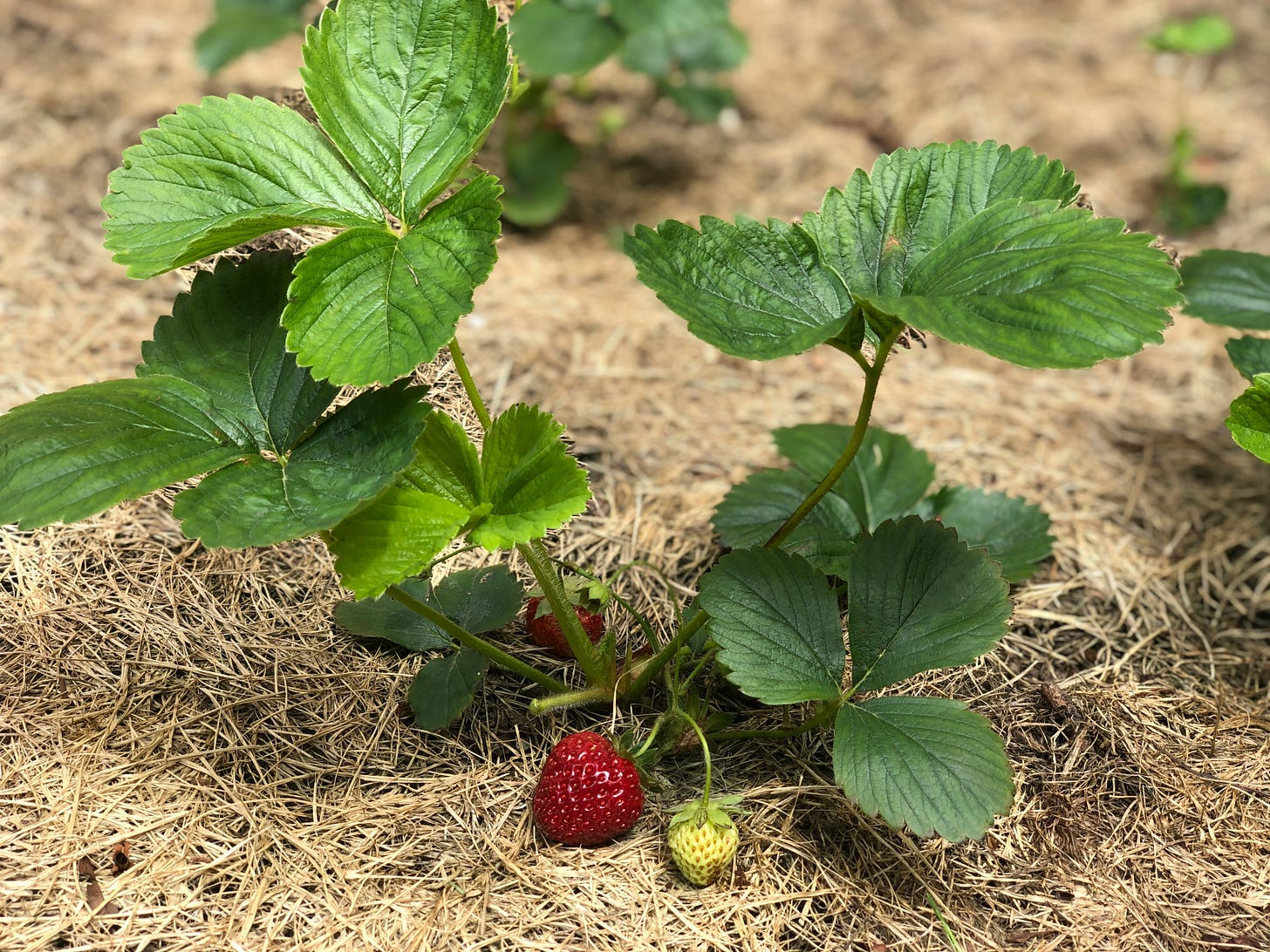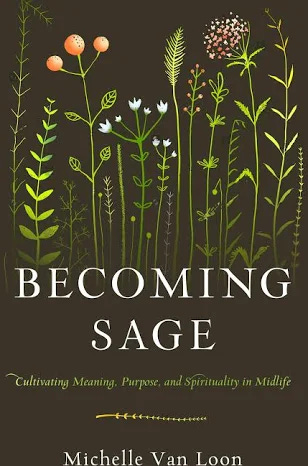The mission of The Sage Forum is to encourage, equip, and empower women over 40 to mature in faith and grow in wisdom. We send out a newsletter at the beginning of each month focusing on a different theme relevant to women in the second half of life.
This Sage Forum Extra! is a short mid-month reflection meant to offer you a word of encouragement. Today, we’ll take a look at how we grow spiritually in the second half of our lives. (Spoiler alert: It doesn’t have anything to do with filling in the blanks of discipleship workbooks!) The post below is adapted from the book that is meant to spark this important conversation, Becoming Sage: Cultivating Meaning, Purpose, and Spirituality in Midlife by Michelle Van Loon. At the end of this short post, Michelle is offering a give-away of this book for those who might want to dig into this subject in your church, Bible study, or book group.
“…make every effort to respond to God’s promises. Supplement your faith with a generous provision of moral excellence, and moral excellence with knowledge, and knowledge with self-control, and self-control with patient endurance, and patient endurance with godliness, and godliness with brotherly affection, and brotherly affection with love for everyone.
The more you grow like this, the more productive and useful you will be in your knowledge of our Lord Jesus Christ.” (2 Peter 1:5-8 NLT)
Gaining Bible knowledge or attending church both have value, but neither automatically transforms us into maturing followers of Jesus. Author Dallas Willard likened discipleship to the apprenticeship process, where a student lived and learned in close proximity to a master.
The experience of moving into and through midlife and beyond offers us a fresh invitation to apprenticeship with Christ. We grow in the dailiness of seeking to love God heart, soul, mind, and strength in our bedrooms and boardrooms, in the grief of parenting a prodigal, in the sorrow of losing a parent by degrees to the ravages of Alzheimer’s, in the confusion of a church split, in the joy of cradling a newborn grandchild in our arms. Though our modern tools can be helpful aids, there is no online spiritual maturity test or tidy pre-packaged discipleship program that can shortcut the journey toward maturity. Instead, it forged from the beautiful and awful and mundane stuff of our lives.
In his article “The Major Imperatives Within Mature Discipleship”, author Ron Rohlheiser noted several key growth points relevant to those of us at midlife and beyond. I’ve adapted and expanded his list below as I ponder what the process of becoming sage can look like in our lives as followers of Jesus. This is not a to-do list, but is meant to be a starting point for the way in which we define spiritual maturity:
A sage is growing in her capacity to forgive. Rohlheiser noted in his piece, “Perhaps the greatest struggle we have in the second-half of our lives is to forgive: forgive those who have hurt us, forgive ourselves for our own shortcomings, and forgive God for seemingly hanging us out unfairly to dry in this world. The greatest moral imperative of all is not to die with a bitter, unforgiving heart.” We must receive God’s forgiveness in order to begin to understand how to forgive others. (Ephesians 4:32)
A sage is growing in her response to suffering. Suffering can form us, or it can embitter us. When there are no easy answers, nor any relief, when faced with suffering, we are presented with the hour-by-hour choice to trust the One who suffered for us and stands with us in our anguish. He is not looking for triumphant heroes who deny their pain, but those who can groan Job’s words from our darkness, “Though he slay me, yet will I hope in him” (Job 13:15).
A sage is growing in her practice of gratitude. As believers, we recognize that our gratitude has an object. When we are grateful, we are not just listing the things we like about our lives, but offering thanksgiving to the Giver of every good gift. In addition, gratitude extends to worshipping Him for who He is. A life steeped in gratitude overflows with the blessing of others, even toward those who have acted as our enemies (Matthew 5:38-48).
A sage is growing in her expression of humility. A sage rightly appreciates her place in the world. Not with the kind of “aw shucks” false humility rooted in pride, but with the kind of true humility that is rooted in faith in God (Romans 12:3). As we continue to come to terms with our limitations, we learn to relinquish to the Lord what we may have once tried to control. We surrender the notion of performing for others and discover the joy of being appropriately honest about both our strengths and our weaknesses.
A sage is growing in the way in which she offers empathy. Mature expressions of faith are marked by empathy, sensing the emotions another may be feeling, and seeking to understand their experience. A sage weeps with those who weep and rejoices with those who rejoice (Romans 12:15), sharing the comfort they’ve received from God (2 Cor. 1:3-5).
A sage is growing in love. This love reflects the kind of love Jesus offers to each one of us: “This is how we know what love is: Jesus Christ laid down his life for us. And we ought to lay down our lives for our brothers and sisters.” (1 John 3:16). As we mature, we recognize that love looks more like cleaning up after a parent with dementia has had a toileting accident than it ever will the lyrics to a summer pop song or a five-dollar Valentine.
Prayer: Father, please free me from any half-baked and unhelpful ideas about how to grow spiritually so I can be free to discover what it means to keep close company with you as your apprentice. Your ways are not my ways. Amen.
OFFER: If you would like a FREE review copy of Becoming Sage to share with your Bible study group, book club, or other gathering, click here to send us your name and U.S. mailing address. We have a total of 5 copies to share.
Photo by 50m. above on Unsplash





